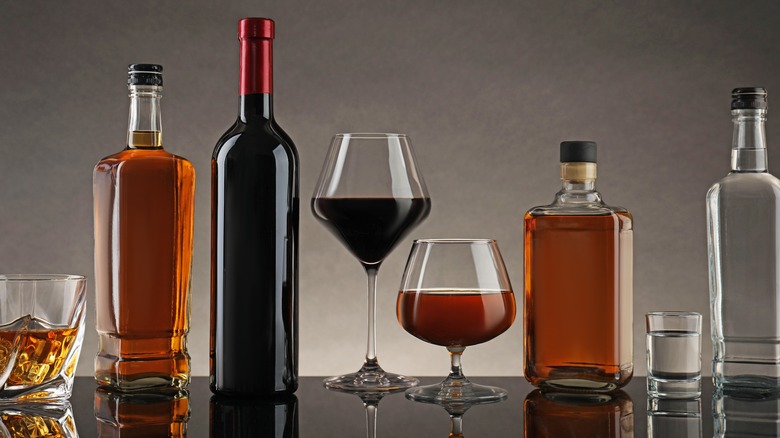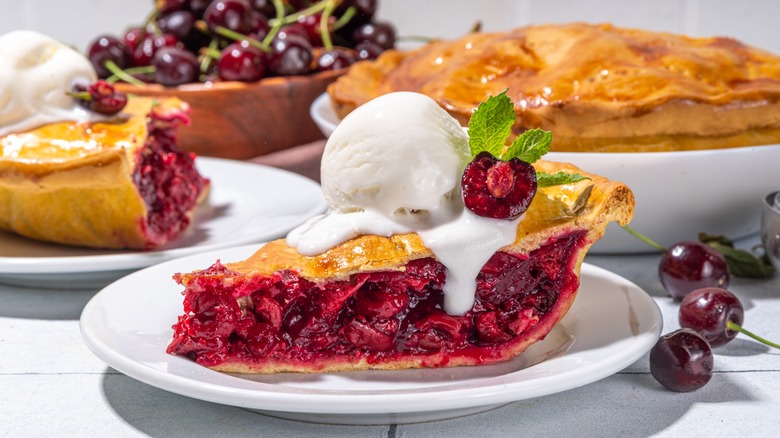The Best Spirits To Booze Up Your Baking
One of the best ways to add a kick to run-of-the-mill baking recipes is to raid your liquor cabinet for a splash of booze. Spirits are packed with layers of flavor that can add a whole new depth to your usual bakes, while also bringing more moisture for a soft, rich, and gooey texture. But exactly which alcohol should you use to "booze up" your baking? Should you pour in a dash of gin or vodka, some dark whiskey, or a thick and creamy liqueur?
Food Republic reached out to Cédric Vongerichten, executive chef and owner of the New York-based restaurant Wayan, to get an expert's take on the question. Vongerichten, who is busy preparing for City Harvest's annual BID tasting event on October 29, knows a thing or two about how alcohol can elevate your baked goods. His suggestion? Use dark rum, bourbon, and brandy for baking. These spirits are often aged in barrels, giving them a woody, smoky earthiness with notes of warm spices and caramel, as well as a slight sweetness reminiscent of vanilla. According to Vongerichten, all three options have "deep[,] rich flavors that complement ingredients like chocolate, spices, or caramel," making them fantastic additions to bakes with such tones.
The chef also recommends using rich coffee liqueurs like Kahlua in sweet bakes like cakes and brownies. Or, you can always use them to add a punch to good ol' tiramisu as well. That said, it's important to know how to use these spirits properly to get the most out of them in baking.
How to add these spirits to your bakes
There are many ways to use these three spirits in baking. Bourbon has a deep warmth that shines in fillings for fruit and nut-based pies with spices; brandy's sweet notes are a great addition to chocolate cakes and gingerbreads; and dark spiced rums go fabulously in fudgy brownies and fruity bread puddings. A splash of booze can also upgrade any boxed cake mix, and it can even save the least appetizing Christmas fruit cake. When using it this way, Cédric Vongerichten's advice is to pour spirits into the wet ingredients, and then whisk those into the dry ones as usual. Alternatively, he recommends soaking dried fruits like raisins in spirits before adding them to batters.
You don't always have to bake the alcohol, though: You could dilute the spirits in sugar syrups and use that to moisten cake layers, or whisk them into frostings, icings, glazes, and cream fillings. Moreover, all three spirits have characteristics similar to vanilla, in that they bring out the floral, fruity, and spicy notes already present in your bakes. This is why you can use them as substitutes for vanilla extract in just about any recipe that calls for it. Regardless of which recipe you choose to use the spirits in, always start by adding them in small splashes and then pour in more as you taste — you want the booze to complement the other flavors, not overpower them.


